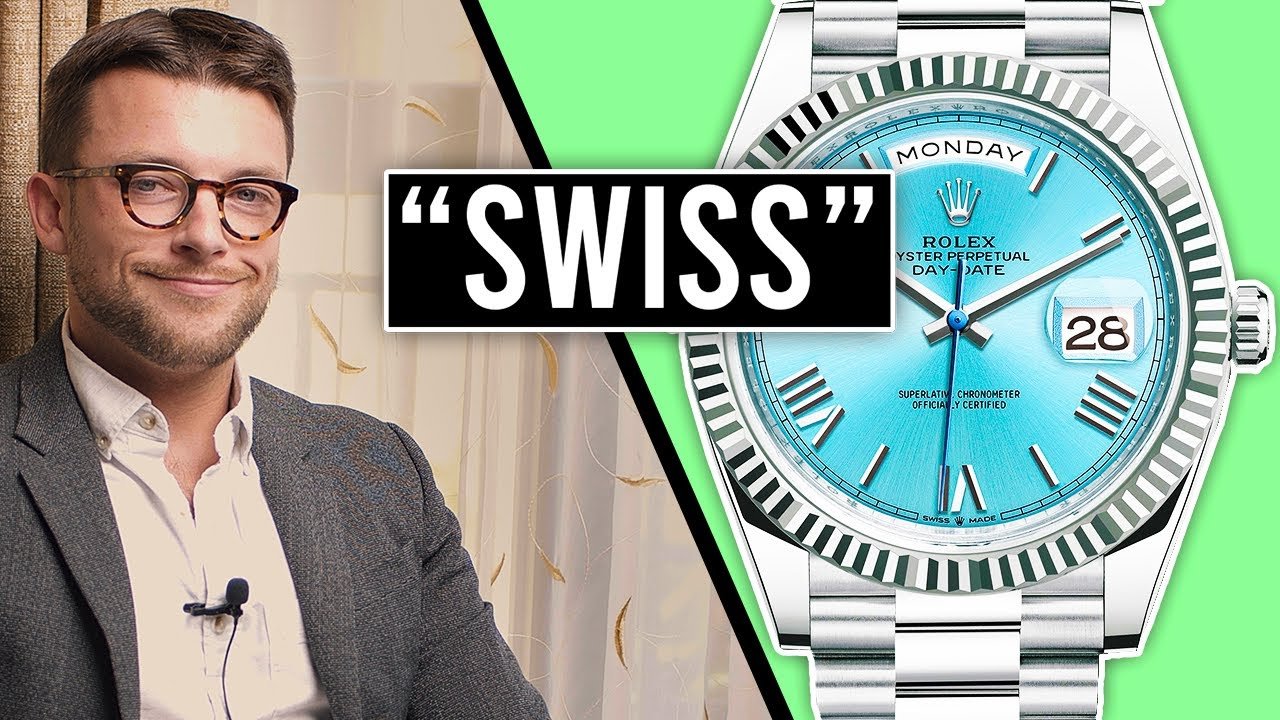Are Swiss Watches ACTUALLY Swiss?
When we speak of luxury watches, one of the first countries that come to mind is Switzerland. For years, Swiss watches have been at the forefront of the luxury watch industry, but are these watches really Swiss? Or is there something else behind the label?
First, it’s important to understand the criteria that a timepiece must meet to be considered a Swiss watch. According to the Federation of the Swiss Watch Industry, a watch can be considered Swiss if:
– Its movement is Swiss-made
– The movement is cased up in Switzerland
– The manufacturer completes the final inspection of the watch in Switzerland
Seems simple enough, right? But in reality, the situation is not as straightforward as it seems.
One of the key issues is that the word “Swiss” has become synonymous with luxury in the watch world. This association has led some brands to take advantage of the term to market their watches as being from Switzerland without actually meeting the above-mentioned criteria.
For instance, a watch might have a Swiss movement, but the rest of the assembly process could take place in another country with cheap labor. Alternatively, some watch companies will use the term “Swiss movement” loosely, implying that the entire watch is Swiss-made, while in reality, only a small part of the watch fulfills the criteria.
This can lead to some ambiguity in labeling, which often confuses consumers. In some cases, brands will use terms such as “Swiss parts” or “Swiss technology” to imply that the watch is Swiss-made. But these phrases, while not illegal, are misleading and can make it challenging to determine whether the watch is Swiss-made or not.
Another issue is that some companies will set up manufacturing sites outside of Switzerland and then have their products transported back to Switzerland to be assembled, tested and certified. While this might seem like a cheap way to produce Swiss watches, it is not in line with the spirit of the criteria set by the Swiss Watch Industry.
So, what can be done to ensure that you are purchasing a genuinely Swiss watch? One solution is to check the origin of manufacture, which should be indicated on the watch’s packaging or accompanying papers. In addition, buyers can research the brand’s reputation, as luxury watch companies have built their reputation in part on the quality of their products and their transparency.
It’s important to note that not all brands that claim to offer Swiss watches are trying to deceive their customers. The cost of manufacturing Swiss-made watches can be prohibitively high, making it difficult for some brands to meet the criteria without charging exorbitant prices. In such cases, it is possible for watchmakers to outsource some components, as long as they are transparent and honest about the production process.
The Swiss Watch Industry has also taken steps to address the problem of false labeling. In 2017, it introduced stricter rules to help combat the use of deceptive language in brand advertisements. The new regulations require any company claiming to produce a Swiss watch to publish information about the provenance of the movement components, as well as the level of assembly in Switzerland.
In conclusion, while the benefits of owning a Swiss watch are undeniable, it’s important to do research and take packaging and brands’ proclamations with a grain of salt. As with most things in life, if something seems too good to be true, it probably is. By being diligent in your watch buying, you can ensure that you are getting a truly Swiss timepiece.
